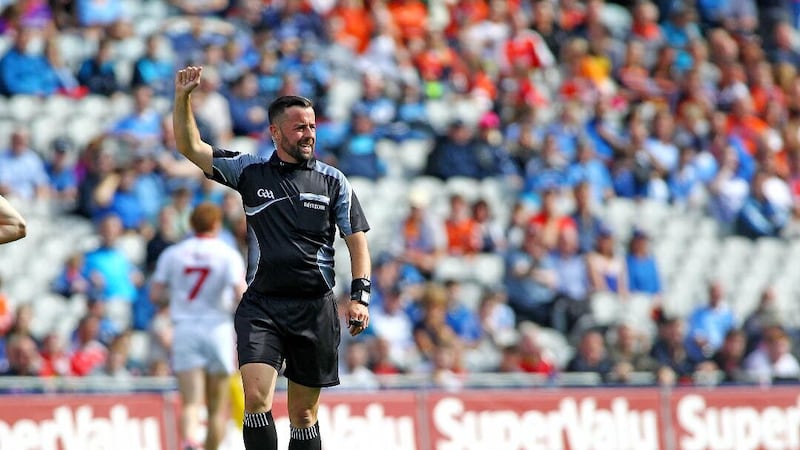During the coronavirus pandemic there has been a tendency to imply that, as a society, we must choose between lives or the economy. This is a simplification that we would be better to get past if we don’t want to suffer unintended consequences that may yet prove worse than the disease.
It’s clear that the virus is highly infectious and, until a vaccine is developed, we are at risk of catching it. It could be 12 months or more before a vaccine is available.
For around 80 per cent of us, the symptoms should be relatively mild, but for the remaining 20 per cent its impact will range from moderate to severe. There is a risk of death for a small but significant proportion of us, particularly for those who are older or those who have underlying health problems.
It is vitally important that the growth of the spread of the virus is as slow as possible, to let our health system cope and give patients the best chance of survival. The strategy that the government and devolved institutions have followed so far appears to have ‘flattened the curve’ and ensured that the NHS is not swamped.
We should appreciate, as most of us do, that health workers are risking their lives for us. The best way we can show our appreciation is by abiding by the rules of lockdown, while they are still in place.
If an effective antibody test is rolled out successfully, it will tell us how widely the virus has spread among the general population. It should show that increasing numbers are immune and allow us to gradually open up society and the economy. Critically, we must continue to minimise the risk for the most vulnerable.
This is a difficult time and for many, it will be a tragic time. What we need is honest and constructive leadership from those who are in a position to make a difference to seriously ill people.
It’s disappointing to see that some politicians are eager to attack Robin Swann, the chief medical officer, or others in the health service, in an effort to score political points. We need also to have the maturity to discuss all the issues around this disease and the lockdown seriously, rather than presenting a populist point of view.
The economy makes a real difference to mortality rates and life expectancy. We know too about problems with physical and mental health that are likely to increase because of lockdown. These are difficult issues, which require careful thought, and the answers won’t be simple or easy.
We are approaching a point in the next few weeks when we will probably have to risk reducing the restrictions, in order to get our economy started again. We have to help and support the people who will make those difficult judgment calls. And as that debate takes place, we will need innovative ideas about caring for those who must remain in isolation for longer. How can we maintain social contact but keep the risks to a minimum?
How do we start to open our economy while discharging our responsibility to protect the most vulnerable?
Many challenges lie ahead and the future will be shaped by a greater appreciation of what we have. We should aim to take better care of our society and all of us within it.
TREVOR RINGLAND
Holywood, Co Down
Every gap punishing vulnerable groups in society needs to be closed
I wish to highlight the urgent need for Education Minister Peter Weir to sign off on much needed supports to substitute teachers during Covid-19.
This is another group of workers left falling between the cracks at this time of crisis, many of them young and in the early stages of a career that they are now feeling locked out from and let down by. The longer this sits on the minister’s desk, and the more non-committal remarks he is allowed to give on this issue, the more likely that these workers will be forgotten and let slide into unexpected and undeserved financial hardship, and the harder it will become for them to pick up the pieces.
Many substitute teachers will have had every reason to expect that they had solid work lined up for the rest of the year - but now find themselves rudderless and out of options, with contracts terminated early as staff cut short maternity leaves and return from long-term sickness.
This is precarious employment to begin with, with too few rights – and these are the people that are often keeping schools going, readying children for their exams and bringing stability and hope to situations where progress has been hampered by staff absenteeism. These are often young people, fighting to gain a foothold in a career that they have worked so hard for – and they will doubtless be losing hope with it now. And then the panic over rent, mortgage, utility bills, food –substitute teachers have been left totally exposed.
They’re not alone in this, of course – and every gap that is punishing a vulnerable group in our society needs to be closed. This issue is just one that could be sorted today at the stroke of a pen – the proposal has already been drafted and funds have been allocated to the department.
THERESE McKENNA
Belfast BT7
Left-wing catechism
I don’t know what edition of The Irish News C Murray (April 22) was reading when he criticised Mary Kelly’s “left-wing catechism” regarding Trump voters.
I, along with many of my left-wing friends, understand that one of the reasons why Trump attracted votes was because of the thousands of jobs lost under the Clinton administration with the signing of the North American Free Trade Agreement.
What C Murray does not quote is that part of Kelly’s article welcoming the election of Keir Starmer and the dismissal of left-wing members of the cabinet.
‘Left-wing catechism’, I don’t think so.
ERNEST WALKER
Belfast BT15
Make wearing of masks compulsory
At long last our wonderful British government has informed the electorate that wearing a face mask to protect themselves and others from any possibility, of a respiratory disease is acceptable.
Fifty years ago in my days as a seaman in the Merchant Navy days, I spent close to 10 years being in and out of Japan. During this period I was informed by my Japanese friend that wearing a face mask was considered not only good manners, but more for the principle purpose of preventing others from being smitten by a respiratory illness.
It now appears our politicians have difficulty in coming to a decision whether to make it legal, or not.
Is it any wonder Britain is struggling with controlling this Coronavirus disease? More to the point, to date 80-plus brave National Health Service personnel (heroes in my eyes) have sacrificed their lives for others in our society.
HARRY STEPHENSON
Kircubbin, Co Down







